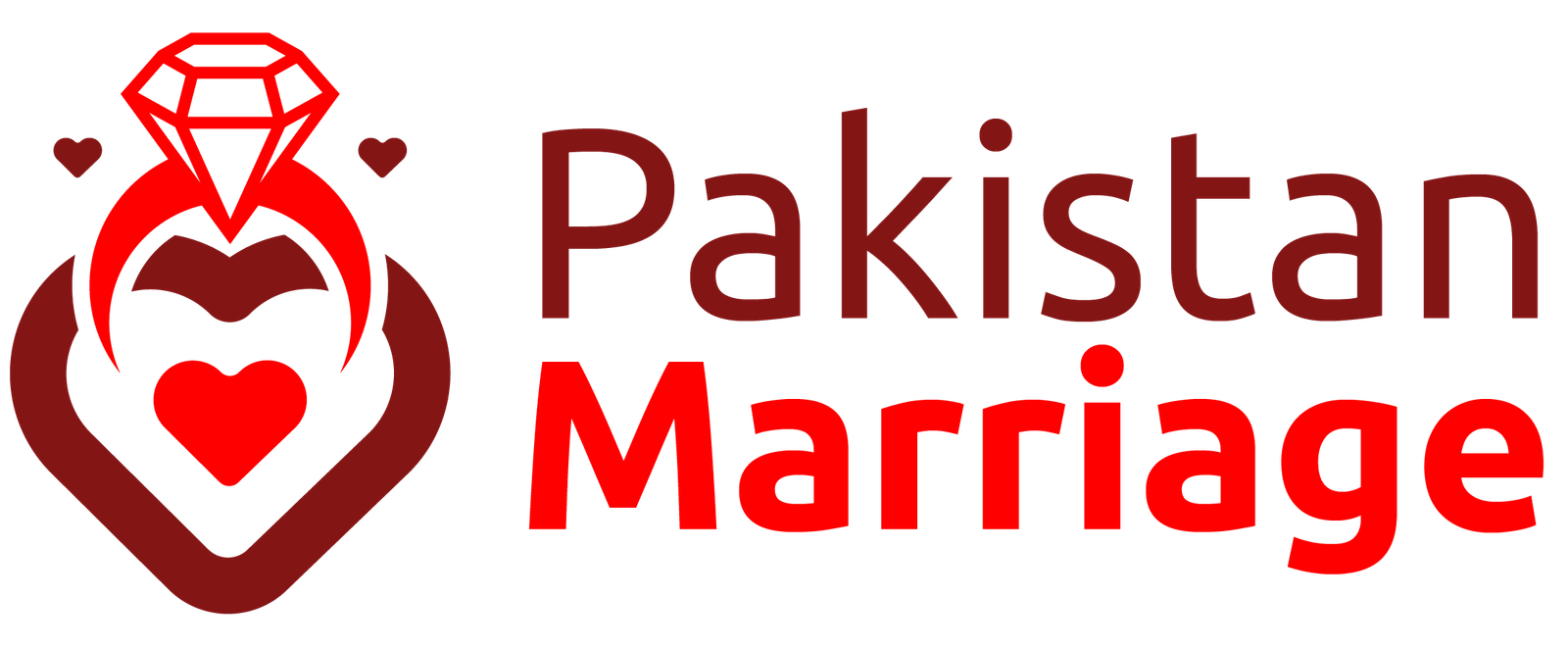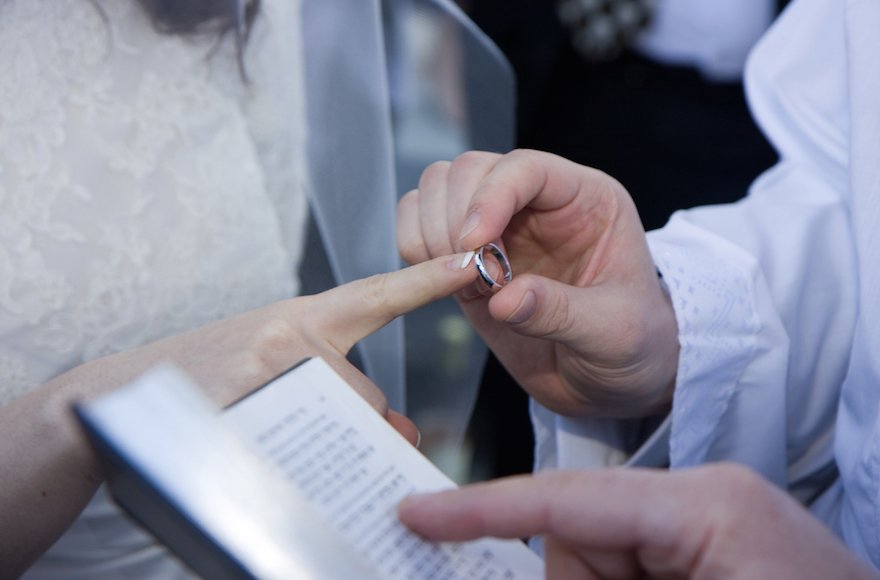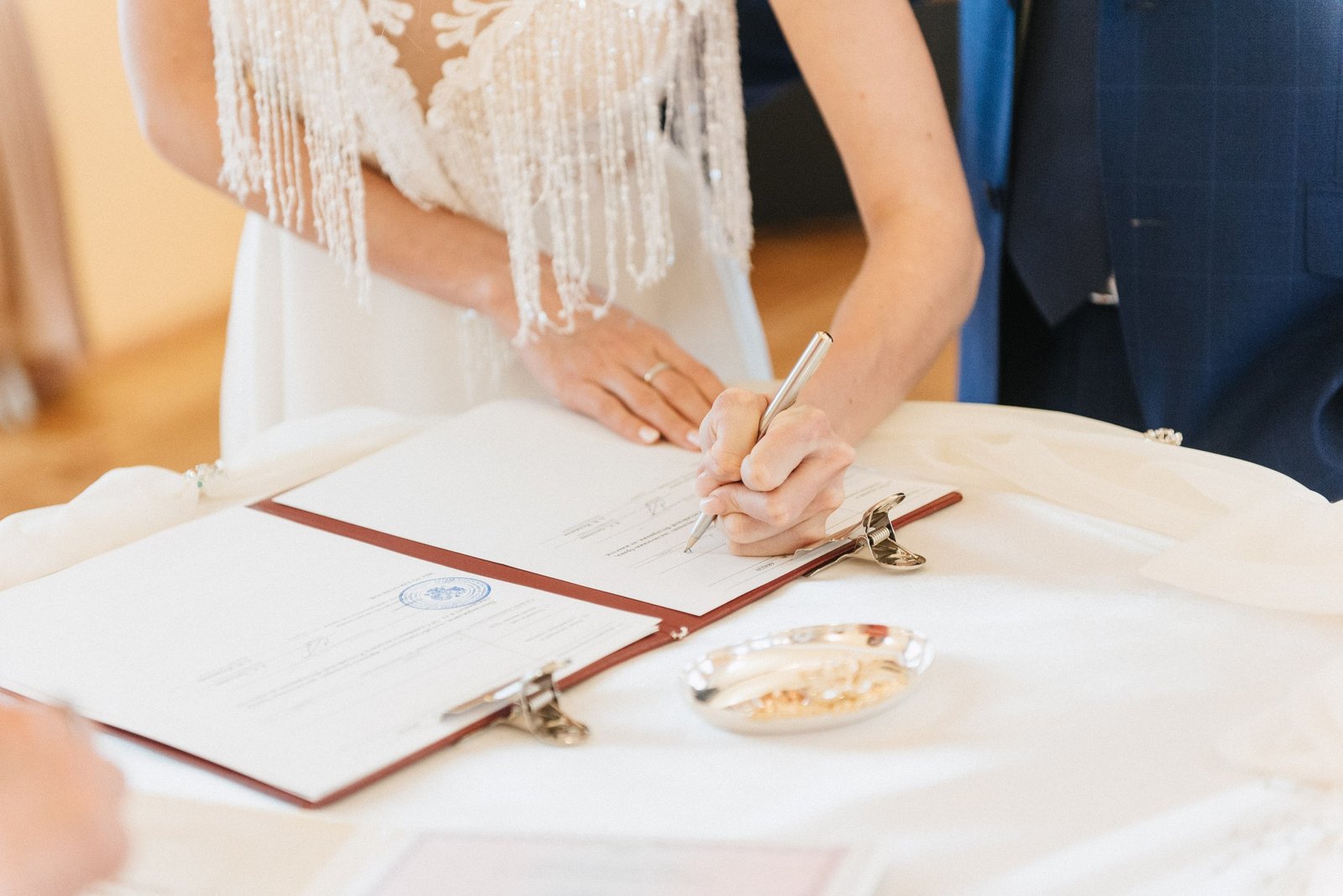
- +92302-6644789
- info@pakistanmarriage.com,pk
- Mon - Fri: 9:00 - 18:30
Need A Free Consultation? Make An Appointment
Need A Free Consultation? Make An Appointment

+92316-6644789

The institution of marriage has undergone significant changes throughout history, and one of the most recent transformations is the shift from traditional paper-based marriage certificates to electronic marriage certificates. An electronic marriage certificate represents a digital version of the legal document that formalizes the union between two individuals. This innovation is part of a broader global trend toward digitization, and it comes with several advantages, including increased efficiency, accessibility, and security. In this essay, we will delve into the concept of the electronic marriage certificate, its evolution, benefits, challenges, and implications for the institution of marriage.
To grasp the significance of e-marriage certificates, it is essential first to understand the traditional marriage certificate’s role. A marriage certificate is a legally binding document that attests to the marriage of two individuals. It serves as proof of their union and is required for various legal, financial, and administrative purposes, including name changes, spousal benefits, and immigration processes.
On the other hand, electronic Marriage Certificates (e-marriage certificates) represent a digital version of this traditional document. They are generated and stored electronically, often using secure and government-sanctioned platforms, and are designed to provide the same legal validity and recognition as their paper counterparts.




+92316-6644789
+92302-6644789
+92333-2316871
Marriage certificates have evolved, adapting to changes in society and technology. Initially, marriage records were handwritten in registers and maintained by religious institutions or local authorities. As societies modernized, governments took on the responsibility of recording and issuing marriage certificates. These certificates were typically printed on paper and stored in physical archives.
The digital age brought about a fundamental shift in how marriage certificates are created, stored, and accessed. Several key factors have influenced this transition to electronic marriage certificates:
– The advent of computers, the internet, and secure digital platforms has enabled the digitization of various administrative processes, including issuing marriage certificates.
– Digital signatures, encryption, and secure databases have made it possible to securely create and manage electronic marriage certificates.

– Electronic records are less susceptible to loss, damage, or forgery than paper-based certificates.
– Digital certificates can be encrypted and protected with access controls, enhancing data security and integrity.
– The move to electronic certificates aligns with sustainability goals by reducing the use of paper and associated resources.
– It contributes to environmental conservation efforts and lowers the carbon footprint of administrative processes.
The adoption of electronic marriage certificates brings forth a multitude of benefits for both individuals and government authorities responsible for marriage registrations.
– Electronic marriage certificates streamline marriage registration, reducing couples’ waiting time to receive certificates.
– It allows for quick and easy updates or re-issuance of certificates in cases of name changes or lost documents.
– Digital certificates are less vulnerable to tampering or fraud than physical documents.
– The use of encryption and secure databases ensures the authenticity of electronic records.
– Government authorities benefit from reduced paperwork, manual data entry, and administrative overhead.
– This increased efficiency allows agencies to reallocate resources to other critical tasks.
– Electronic marriage certificates can be accessed remotely, making it convenient for couples residing in different locations or countries.
– This accessibility is particularly advantageous for international marriages, where certificates may need to be presented for immigration or legal purposes.
– Digital records enable authorities to analyze marriage trends and demographics, aiding in policymaking and resource allocation.
– This data-driven approach can lead to more informed decisions regarding marriage-related services.
– The shift to electronic marriage certificates can lead to cost savings regarding paper, printing, and storage.
– These resources can be allocated elsewhere, benefiting government agencies and taxpayers.


While electronic marriage certificates offer numerous advantages, their adoption is not without challenges and concerns that need to be addressed.
– Not all individuals, especially in underserved or rural areas, may have access to digital technology or the necessary digital literacy to navigate electronic marriage certificate systems.
– Bridging the digital divide is crucial to ensure equitable access.
– Storing sensitive personal information digitally raises concerns about data security and privacy breaches.
– Strong data protection measures, cybersecurity protocols, and compliance with privacy regulations are essential.
– Some jurisdictions may still require physical marriage certificates for legal recognition.
– Ensuring universal acceptance and legal validity of electronic marriage certificates may require diplomatic negotiations and legislative changes.
– Traditionalists may resist the shift to electronic certificates, citing concerns about preserving cultural and religious traditions.
– Engaging with religious leaders and communities to address these concerns is essential.
– Technical issues, such as system failures, data corruption, or cyberattacks, can disrupt marriage registration.
– Robust backup systems, technical support, and disaster recovery plans are necessary to mitigate these risks.
The adoption of electronic marriage certificates has significant implications for the institution of marriage:
– Electronic marriage certificates represent a modernization of the marriage registration process, aligning it with contemporary technological advancements.
– This modernization can lead to more efficient and convenient marriage-related services.
– Digital records make it easier for couples from different countries to marry, promoting cross-cultural unions and international marriages.
– This globalization can contribute to cultural exchange and cooperation on a global scale.
– Electronic marriage certificates can simplify legal processes related to marriage, divorce, inheritance, and spousal rights.
– Authorities can access records quickly, leading to faster dispute resolution and fairer outcomes.
– Electronic certificates can include provisions that promote gender equality, such as specifying women’s rights to education, work, and financial independence.
– This aligns with efforts to empower women and protect their rights within marriages.
– Digital records reduce the potential for forced or underage marriages by ensuring that marriages are consensual and legal.
– Authorities can easily verify the authenticity of certificates, mitigating the risk of exploitation.
– The availability of digital marriage data can facilitate research and analysis on marriage trends and practices.
– Researchers and policymakers can utilize this data to develop evidence-based policies and interventions aimed at strengthening family structures and promoting healthy marriages.
Adopting electronic marriage certificates represents a significant step in modernizing and simplifying marriage. While it comes with challenges, such as addressing the digital divide and ensuring data security, the benefits of efficiency, accessibility, and preserving the integrity of marriage traditions are compelling.
Efforts should be made to ensure that electronic marriage certificates are inclusive, culturally sensitive, and legally recognized in all jurisdictions. As technology evolves, the marriage certificate may transform to meet couples’ changing needs and expectations in the digital age.
The electronic marriage certificate symbolizes the intersection of tradition and innovation, demonstrating the adaptability of marriage customs in the face of technological progress. This shift towards digitization streamlines administrative processes, empowers individuals, and strengthens the foundations of marriage in the modern era.
An electronic marriage certificate is a convenient and efficient way to obtain proof of your union. Here’s how you can quickly obtain one:
First, check with your local government or registry office to see if they offer electronic marriage certificates. Many jurisdictions now provide this option as a digital alternative to traditional paper certificates.
Next, gather the necessary information and documents required for the application process. This usually includes providing personal details such as names, dates of birth, and identification documents like passports or driver’s licenses. Make sure you have all the necessary paperwork ready before applying.
Once you have everything prepared, submit your application online through the designated website or portal your local government provides. Follow the instructions carefully and ensure that all information is entered accurately. Pay any applicable fees and wait for confirmation of receipt.
Obtaining an electronic marriage certificate has always been challenging! You can quickly have a digital copy of your marriage certificate with just a few simple steps. Enjoy the convenience of accessing this vital document whenever and wherever you need it without worrying about misplacing or damaging physical copies.
Regarding the validity and legal recognition of electronic marriage certificates, couples can rest assured that they hold the same weight as traditional paper certificates. Electronic marriage certificates have been designed to meet all legal requirements, ensuring that they are recognized by governmental authorities and institutions worldwide.
One of the key benefits of electronic marriage certificates is their ability to be easily verified. With a unique digital signature and encryption technology, these certificates provide an added layer of security against tampering or fraud. This ensures that couples can confidently use their electronic certificate for any official purposes, such as changing names on identification documents or applying for spousal benefits.
Many countries and states have amended their laws to explicitly recognize electronically issued marriage certificates. These changes reflect the growing acceptance and trust in digital documentation. As a result, couples who choose an electronic certificate can enjoy seamless access to services like healthcare coverage, social security benefits, and immigration processes without complications.
There is no doubt about electronic marriage certificates’ validity and legal recognition. They offer all the rights and privileges afforded to traditional paper-based documents while providing additional convenience and security features. Couples can confidently embrace this modern approach, knowing their union will be legally recognized wherever they go.
1. How do electronic marriage certificates work?
Electronic marriage certificates are digital versions of traditional paper certificates, providing a secure and convenient way to record and store information about a couple’s marriage. These certificates can be obtained through online platforms or government websites, eliminating the need for physical paperwork.
2. Are electronic marriage certificates legally recognized?
Yes, electronic marriage certificates are legally recognized in many jurisdictions worldwide. They meet the exact legal requirements as their paper counterparts and carry equal weight regarding proof of marital status.
3. Can I obtain an electronic marriage certificate if I already have a paper one?
In most cases, yes! Many governments now offer the option to convert your existing paper certificate into an electronic format for easy access and storage. Check with your local government office or official website for more information on how to make this transition.
Remember, each jurisdiction may have specific requirements and processes for obtaining an electronic marriage certificate. So, it’s always best to consult with your local authorities or visit their official website for accurate information tailored to your region.
You may wonder where resources and support are needed when obtaining an electronic marriage certificate. Fortunately, various options are available to help guide you through the process.
Check with your local government office or registry, as they often provide information on obtaining an electronic marriage certificate. They can offer guidance on any specific requirements or procedures that must be followed.
Online platforms and websites dedicated to marriage certificates can also be a valuable resource. These platforms often provide step-by-step instructions on applying for an electronic certificate and may even offer customer support services if you have any questions or concerns.
Don’t underestimate the power of online communities and forums. Joining groups or discussion boards related to marriage certificates can connect you with others who have undergone the same process. You can seek advice, share experiences, and find additional resources recommended by fellow members.
Remember that while these resources and support systems help navigate the world of electronic marriage certificates, verifying their credibility is essential before relying on them entirely.
As technology advances, the future of electronic marriage certificates looks promising. With their numerous benefits and increasing acceptance by governments worldwide, more countries will likely adopt this digital alternative to traditional paper certificates.
In the coming years, we can expect to see further improvements in the accessibility and security of electronic marriage certificates. Efforts will be made to streamline the application process and enhance integration with government databases. This will make it easier for couples to obtain marriage certificates and facilitate efficient record-keeping for authorities.
Blockchain technology advancements may revolutionize how electronic marriage certificates are stored and verified. The decentralized nature of blockchain ensures tamper-proof records, providing an extra layer of security and trustworthiness.
The future may also bring about international recognition and interoperability of electronic marriage certificates. This would greatly benefit couples who marry abroad or must prove their marital status across borders without facing bureaucratic hurdles.
As society increasingly digitizes, embracing electronic solutions like marriage certificates seems inevitable. While there may still be some challenges ahead, such as addressing concerns regarding privacy and data protection, it is evident that this shift towards a digital era for marriages is well underway.
So if you’re planning your wedding or have recently tied the knot, keep an eye on electronic marriage certificate systems developments. Who knows? One day soon, you’ll find yourself proudly displaying your legally recognized digital certificate instead of a worn-out piece of paper!Remember: change takes time! But each year, we move closer toward a more efficient and technologically advanced system for documenting our unions.
M-51, Muneer Mobile Mall, Block 17, Near Perfume Chowk & Jauhar Chowrangi, Gulistan-e-Jauhar.
Pakistan Legal Advisors, Office No. 5, 2nd Floor, Laraib Plaza, Karachi Company, G-9 Markaz
Qanoon Online, 2nd Floor, Al-Mairaj Arcade, Near Surayya Azeem Trust Hospital, Chauburji Chowk.
Get in touch with a lawyer or attorney dedicated to helping you achieve your goals, or send us an email. You will receive a prompt response from us. Be assured that your matter will remain a top-secret matter for us.
WhatsApp us